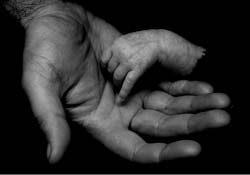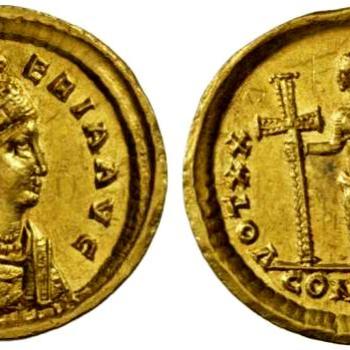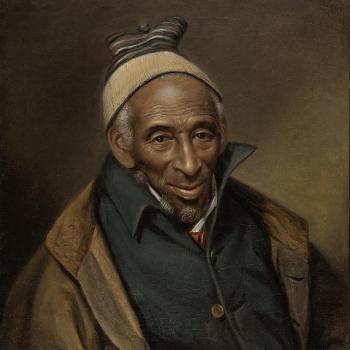By Jane Tou
 My father is not a Christian. I am his eldest daughter, now an adult with a child of my own, and my father has never understood me. I suppose I have never quite understood him. My mother chose to marry a non-believer. She has lived with consequences, and so have I.
My father is not a Christian. I am his eldest daughter, now an adult with a child of my own, and my father has never understood me. I suppose I have never quite understood him. My mother chose to marry a non-believer. She has lived with consequences, and so have I.
I was raised in a peaceful home, the daughter of parents who had emigrated from Taiwan. Although my father is a truly and thoroughly good man, and I love him dearly, I was always keenly aware that he and my mother were distant and disunited. Their marriage was more a matter of rote formality and responsible child-rearing than of deep companionship or shared mission. They stayed well within the ruts their domestic life had worn around them over the years. My mother's relationship with my father was similar to my own: what is most essential to my life is simply not a part of his. What I most treasure, my faith in Jesus Christ, is counted by him as counterfeit.
When an interfaith couple weighs whether marriage is not only attractive but practical, one question they must consider is the effect of their religious difference upon their children. It would be easy, in the rush of young love, to put such mundane and abstract concerns out of mind. It is difficult to ask a man or a woman to make sacrifices on behalf of a child he or she does not yet have. Yet the consequences upon the child are real, and worth considering.
In some respects my experience represents the best that an interfaith couple could reasonably hope for. My father never prevented my mother from taking my sister and me to church. He never stood against our faith, never slandered, never sought to stifle or squelch it. In fact, he would rather that I attend Bible studies or youth group meetings than spend my Friday nights at parties, and he was glad I spent time with the "good" kids at church. Like most Asian-American parents, he felt that his children did not spend as much time as they should on their schoolwork, and sometimes my involvement at church was a convenient scapegoat. But I could hardly have asked someone who did not share my faith to be more accommodating to it.
In some ways he was more moral than many churchgoers I knew. On occasion, he went to feed the homeless on Sundays rather than sit with us in the long wooden pews at church. He never drank or gambled or betrayed his vows. He has lived a life of simple moral decency. His children never had the slightest reason to wonder whether he would be there to provide for them whenever he was needed.
Families with Christian mothers and non-Christian fathers are quite common in Asian-American communities, and my father was better than most at respecting my faith and not standing in the way when I felt that God had guided me to do something he could not understand. So I cannot complain. I have two parents who love and support me, and I am grateful for the blessings I have been given.
And yet, I mourn that my father is not a believer. Since my mother and sister and I stake our lives upon the saving work of Jesus Christ, my father has never quite felt like a part of the family. Perhaps this is the sword to which Jesus refers in Matthew 10:34, a sword that cuts families apart not because they do not love each other but because some love Christ more than all things and some do not love Christ in the slightest. I am sure it grieves Christ to be the edge that divides those who love each other, but the cleavage between us is real. Kind though he is, gentle and good, unless he gives himself to faith, there will always be the greater part of me, the central part of me, that he cannot share.
It feels as though my father stands on the far edge of a gulf that separates us, and this wounds me. I mourn that I was never close to him. I mourn that his soul is closed to spiritual things, and he never learned to open up socially or spiritually. I cannot tell you how many times we sat at the dinner table with my mother and sister and I sharing our lives and our joys and our sorrows and my father read the newspaper and said nothing at all. Part of that was simply his personality, but part was that he never quite "got" us. I mourn as well that I never had a source of Christian fatherly guidance. It would have been wonderful to have a father who had gained wisdom through years immersed in the scriptures, a father who had absorbed the teachings of the Word and could encourage me in the ways that I am truly encouraged. I have never prayed with my father, never worshipped with him, never worked together with him in the fields of the Lord.
Sometimes I wonder whether my mother regrets the decision she made. Although it's hard for me to envision, she says that he was quite the charmer once! But I know the pain their religious difference has caused her. She has accepted it, because she has no other choice, but I know it pains her that she has never had the spiritual companion she might have had. I see it sometimes in her face. Of course, she might have married a Christian man who turned out to be false or abusive. Yet she also might have married a Christian man who would inspire and strengthen her spiritually, who would share in her deepest passions and convictions, who would share the burden of passing on her faith to their children. So I mourn for my mother, who might have shared her life with someone who shares her Life.




